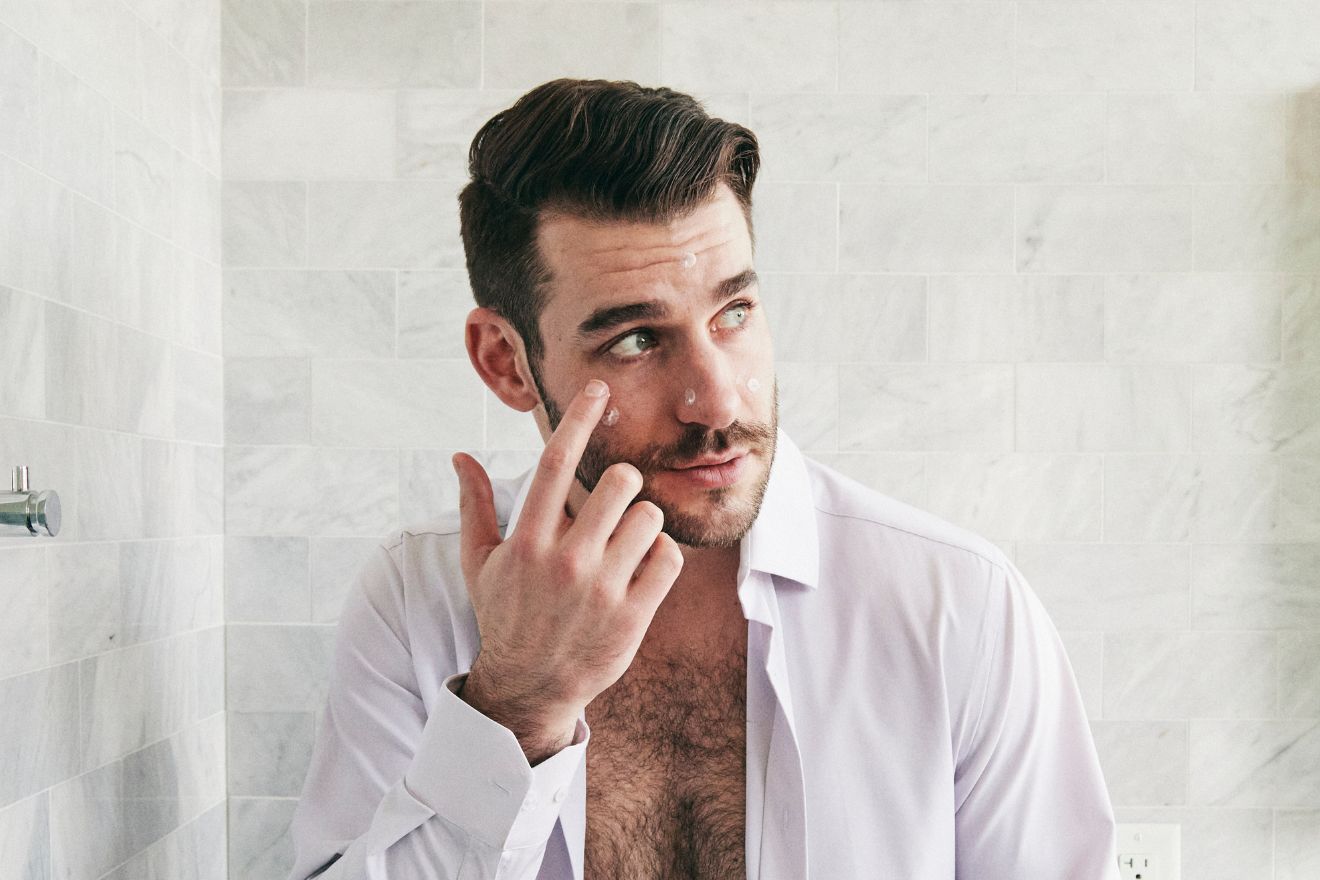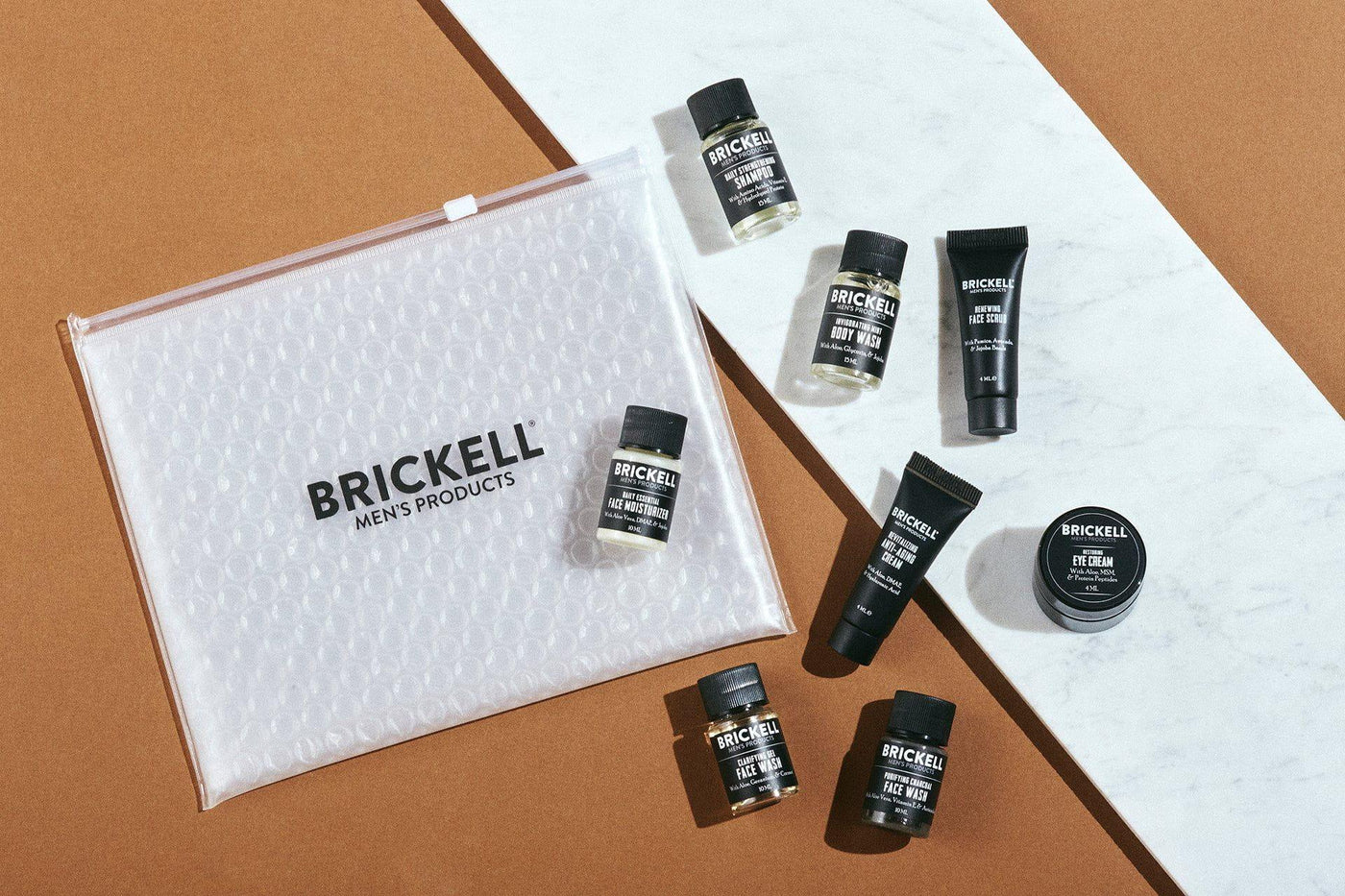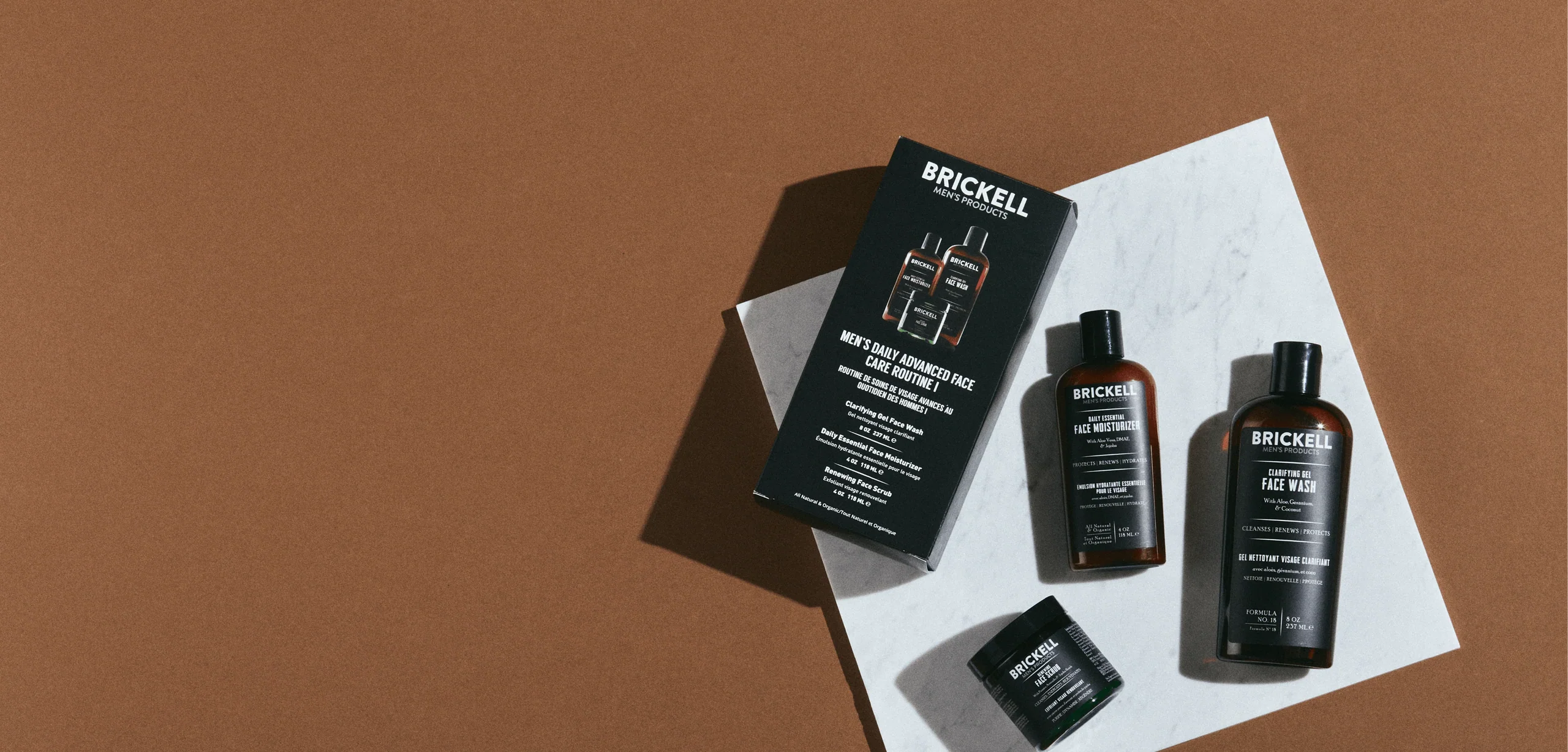The Grooming Manual
Adult Acne in Men: What It Is, Causes of Adult Acne, and How to Treat It

There are many things from your childhood you may want to carry into adulthood – acne however, is not one of them. Adult acne in men can sap you of your hard earned confidence, leaving you feeling inferior and anything but handsome.
You deserve to overcome this pesky skincare issue. So use this guide on adult acne to better understand what exactly acne is, what's causing your breakouts, and the best ways to get rid of acne for good.
What is Adult Acne?
Adult acne is no different than the acne you may have had when you were a teenager. Over ten percent of men over the age of 25 experience regular acne breakouts.
These are caused by excess secretion of sebum in the sebaceous glands, typically caused by a fluctuation in hormones. Sebum mixes with bacteria, white blood cells move into the infected area to heal the issue, and you wind up with a pimple.
What Causes Adult Acne in Men?
Everyone is different and many factors contribute to acne breakouts in men. This is a non-exhaustive list of some of the most common issues that lead to acne.
Stress
Stress causes an increase in androgens, which stimulates your sebaceous glades to overproduce sebum. Androgens are the hormones responsible for developing male traits. You might think having an excess is a good thing, but a balanced amount is far better.
Excessively Dry Skin
Some guys try to reduce oil and acne by drying out their skin. But doing so can cause your sebaceous glands to go into overdrive as they try to bring your skin’s oil level back into balance. This overdrive mode creates too much oil, leaving you at a higher risk for breakouts.
Chemicals & Irritants
Some chemicals and irritants in the skincare products you’re using can cause inflammation and lead to acne. Inflamed skin is more likely to see a build of up white blood cells, causing pimples to appear.
To avoid this, choose skincare products for men made with gentle, natural ingredients. Know your skin and avoid any ingredients that tend to cause irritation, redness, or other negative reactions.
Lifestyle
You are what you eat - and generally, whatever you put in your body. Take notice of how your diet affects your skin. For some men, drinking alcohol, eating certain foods, and using some prescription medications can all cause breakouts. If you are experiencing an increase in acne, review any recent lifestyle changes to try to root out the cause of the problem.
How to Treat Adult Acne
Along with healthy lifestyle habits, you also need to follow a routine of regular skincare designed to treat and prevent acne. If your products are drying out your skin or leaving you with excess oil, you're going to be in for trouble.
We've designed our Acne Control products to reduce the bacteria and oily buildup that contribute to breakouts - but without leaving your skin dry, red, and irritated. Here's how to use them to get the best results:
- Start and end each day by washing your face. You don't need to wash more than twice a day - that could dehydrate your skin. Our Acne Controlling Face Wash is made with 2% salicylic acid, grapefruit, and tea tree oil - all ingredients known for reducing bacteria without negative side effects.
- Follow up with a face moisturizer that fights acne. It should contain hydrating ingredients along with natural substances that fight acne - like salicylic acid, willow bark extract, vitamin E, and tea tree oil. Sealing in moisture right after washing your face ensures all day hydration and acts as a buffer, defending you from skin pollutants. Get these benefits for yourself with our Acne Controlling Face Moisturizer Treatment.
- Spot treat individual blemishes. You can use a more potent formula to fight individual pimples, zits, and blemishes as they appear. We crafted our Acne Controlling Spot Treatment with a combination of 2% salicylic acid, willow bark extract, and witch hazel. These natural ingredients help reduce inflammation and treat redness, hastening the departure of that no-good acne.
How to Treat Acne Scars
Whether they appeared after a series of breakouts during your teen years, a bout of adult acne, or simply a rogue pimple or two that popped up unexpectedly - acne scars and hyperpigmentation are no joke. And they can be really hard to get rid of.
Even if your skincare regimen is great now, these unwelcome reminders of past breakouts can seriously damage self-esteem and confidence in your looks.
The good news? They’re not impossible to get rid of. Here’s what you need to do to effectively heal scars and hyperpigmentation from acne and pimples.
What Are Scars and Hyperpigmentation
To understand what to do, you first have to understand exactly what you’re dealing with.
The term “acne scarring” can refer to a whole range of marks that acne breakouts leave behind. They can appear as pigmentation, or as rolling, boxcar, and ice-pick scars. All forms of acne scarring can last for months, or even years.
Understanding Acne Scars
Scars appear when you touch and squeeze spots that should have been left alone. They’re especially likely to form on people who have cystic acne or significant congestion that was touched too soon or too aggressively.
This overzealousness damages nearby veins, glands, and tissues, causing the spots to scar. The scars themselves are made of an overproduction of collagen that forms when then wound is healing.
Hyperpigmentation
Hyperpigmentation is an overproduction of melanin that develops as a result of trauma to the skin.
Hyperpigmentation doesn’t damage the follicle, so it isn’t considered a true form of scarring. That said, these dark patches can be just as frustrating and difficult to get rid of.
How to Treat Existing Acne Scars
You won’t be able to get rid of scars without a comprehensive skincare routine that will help rebuild your skin’s natural barrier and deal with any existing congestion that could cause problems down the line.
First, you have to deal with the existing scarring and hyperpigmentation. The goal here is to build your skin’s collagen and fade existing spots. This requires ingredients such as:
Vitamin C
Vitamin C is an antioxidant powerhouse that’s known for its ability to reduce signs of aging, repair damaged skin, accelerate collagen synthesis, and correct hyperpigmentation. It’s also an amazing acne-fighter, meaning that it can actually preemptively combat the bacteria that lead to acne scars. As part of your skincare regimen, vitamin C can effectively fade scars and hyperpigmentation over time.
MSM (Methylsulfonylmethane)
This is a nutrient found in most well-known superfoods (like spinach and kale) - and naturally in our own bodies - that brightens skin and reduces pigmentation. It’s also known to inhibit the breakdown of collagen, reduce inflammation, and make the cell wall more permeable. That helps vital nutrients flow easily into the cells.
Peptides
Peptides are proteins found naturally in skin that communicate with cells to trigger collagen production. Our skin is primarily comprised of collagen, which breaks down as we age and settles unevenly when you have acne scars. Applying peptides topically can correct some of this unevenness and allow for smoother, scar-free skin.
Antioxidants
Antioxidants like vitamin C and vitamin E protect your skin against free radical damage and repair existing damage. This tones skin, reduces inflammation, and lessens the appearance of acne scars.
Because of their clear skin restoring benefits, you'll find vitamin C, MSM, and antioxidants in our Clearing Scar Cream. It's a natural moisturizer that fades acne scars, brightens skin, soothes inflammation, and reduces blemishes.
Treating Acne Scars as Part of Your Anti-Aging Routine
If you’re looking to build a more comprehensive skincare and anti-aging routine, you should also consider these powerful products:
- Resurfacing Anti-Aging Cream: This moisturizer contains scar-healing ingredients like vitamin C and MSM. It's also made with ultra-hydrating borage oil, which is known to restore moisture and smoothness to damaged or aged skin.
- Hyaluronic Acid Booster: A key part of dealing with acne scars is making sure that your skin stays moisturized - which is the main benefit of hyaluronic acid. Dryness and dehydration will exacerbate the appearance of scars or uneven tone and texture and make it more difficult for active ingredients like vitamin C to soak into the skin. Add a few drops of this booster to your other skincare products to up the hydration and ensure you never deal with skin dryness.
- Protein Peptides Booster: If you're noticing an increase in wrinkles and fine lines, you can maximize anti-aging and smoothing results of our products with this booster. Add a few drops to your creams and moisturizers to firm the skin, restore a youthful texture, and revive your collagen production.
How To Prevent Future Scars and Sun Spots
Besides treating scars and sun spots you already have, you also want your skincare routine to help prevent future issues. These tips will help.
Limit Sun Exposure
Sun exposure inevitably makes any sunspots or scarring more pronounced. It will also create new spots, even if you’re using the right skincare ingredients.
That’s why it’s important to limit sun exposure by:
- Staying out of the sun
- Using protective clothing
- Applying sunscreen regularly
Incorporate SPF into Your Routine
Using an SPF product daily will help protect your skin from UV damage - which accumulates with time and speeds up the aging process. Our Daily Defense Face Moisturizer both protects and hydrates your skin with:
- Aloe Vera: Deeply penetrates the skin and provides essential moisture and nutrients.
- SPF 20 with Zinc Oxide: Protects against harmful UVA/UVB rays
- Green Tea: Delivers antioxidants for robust anti-aging effects.
- Vitamin E: Fights free radicals and improves the appearance of fine lines and wrinkles.


